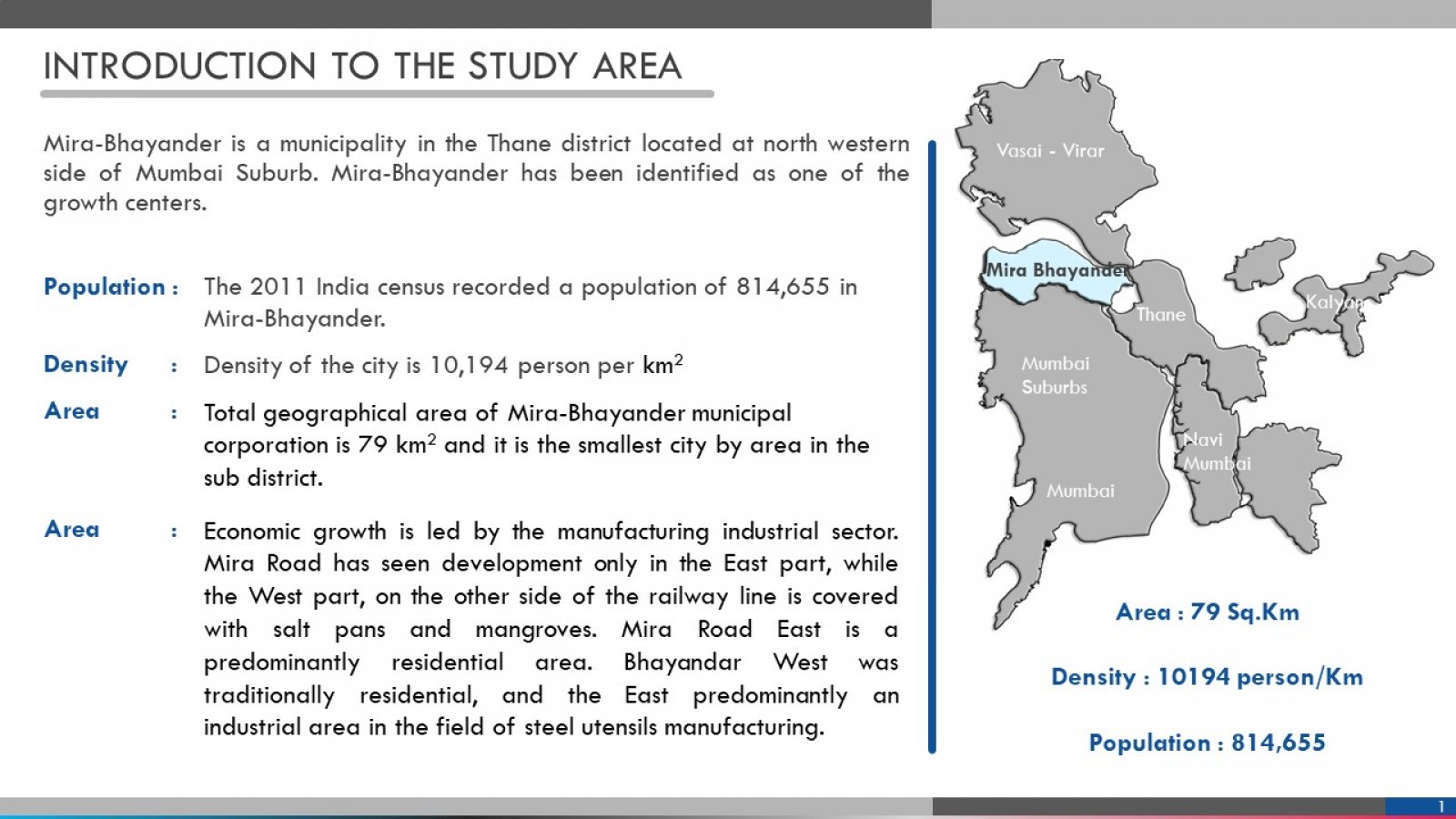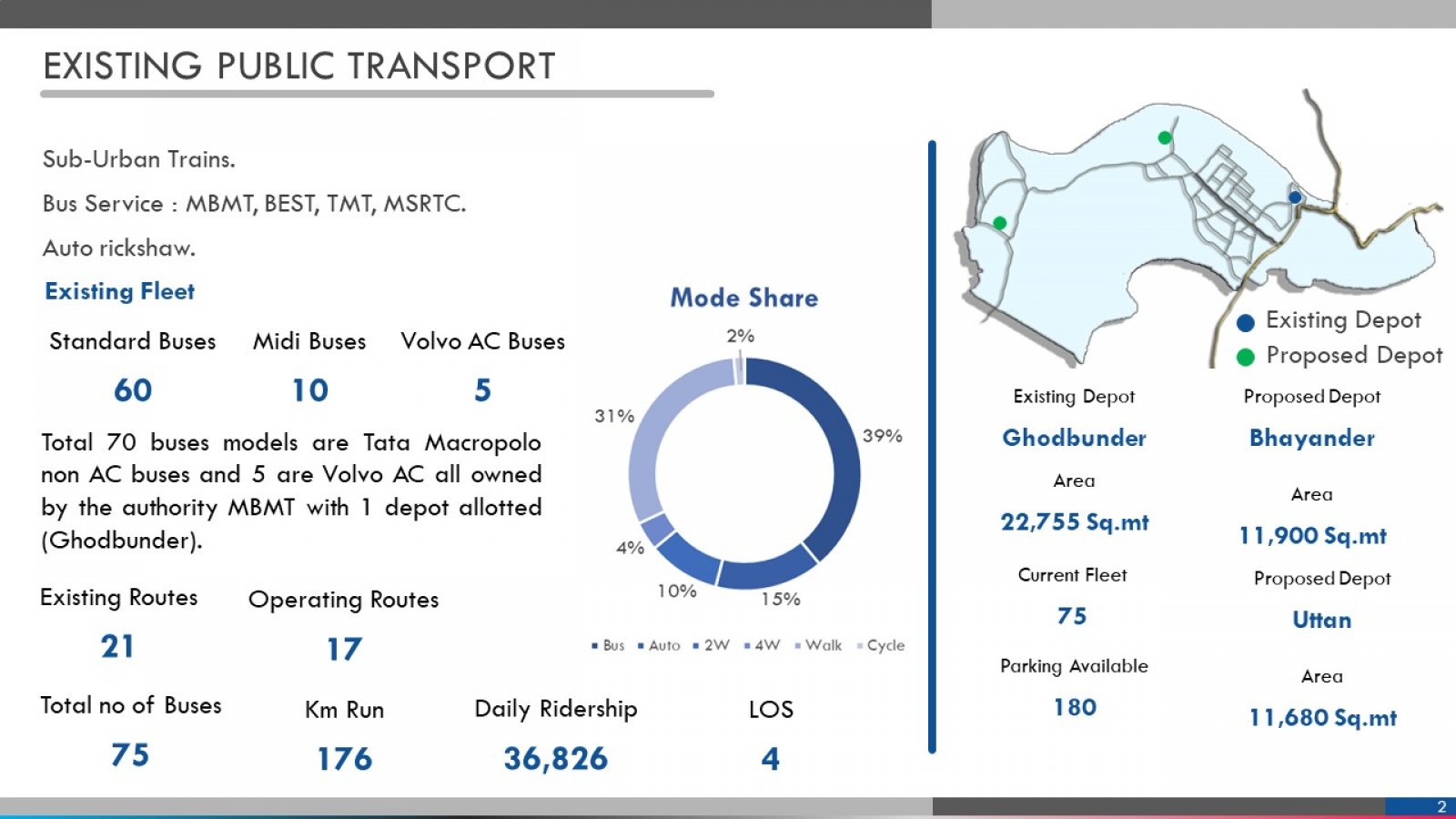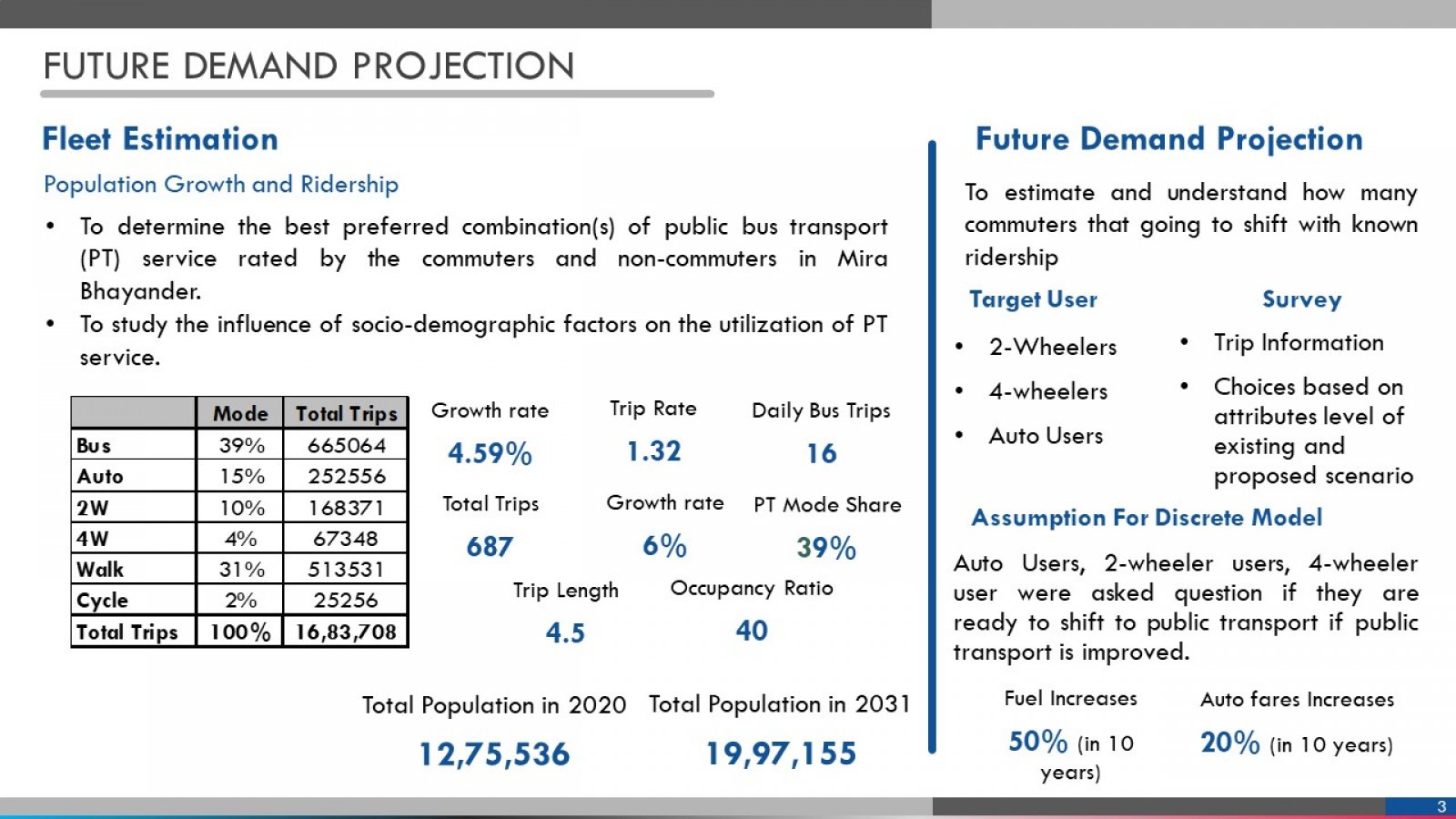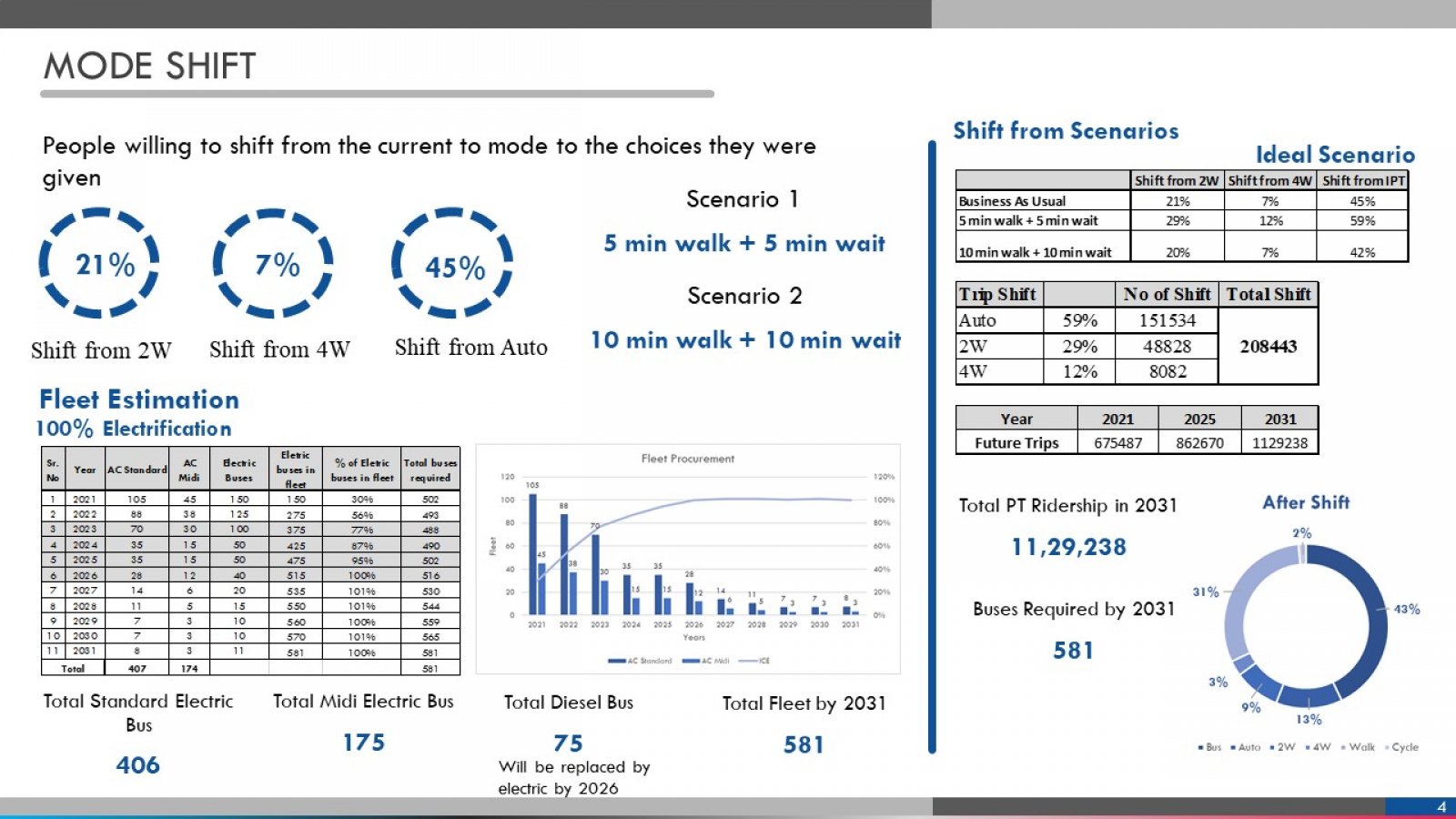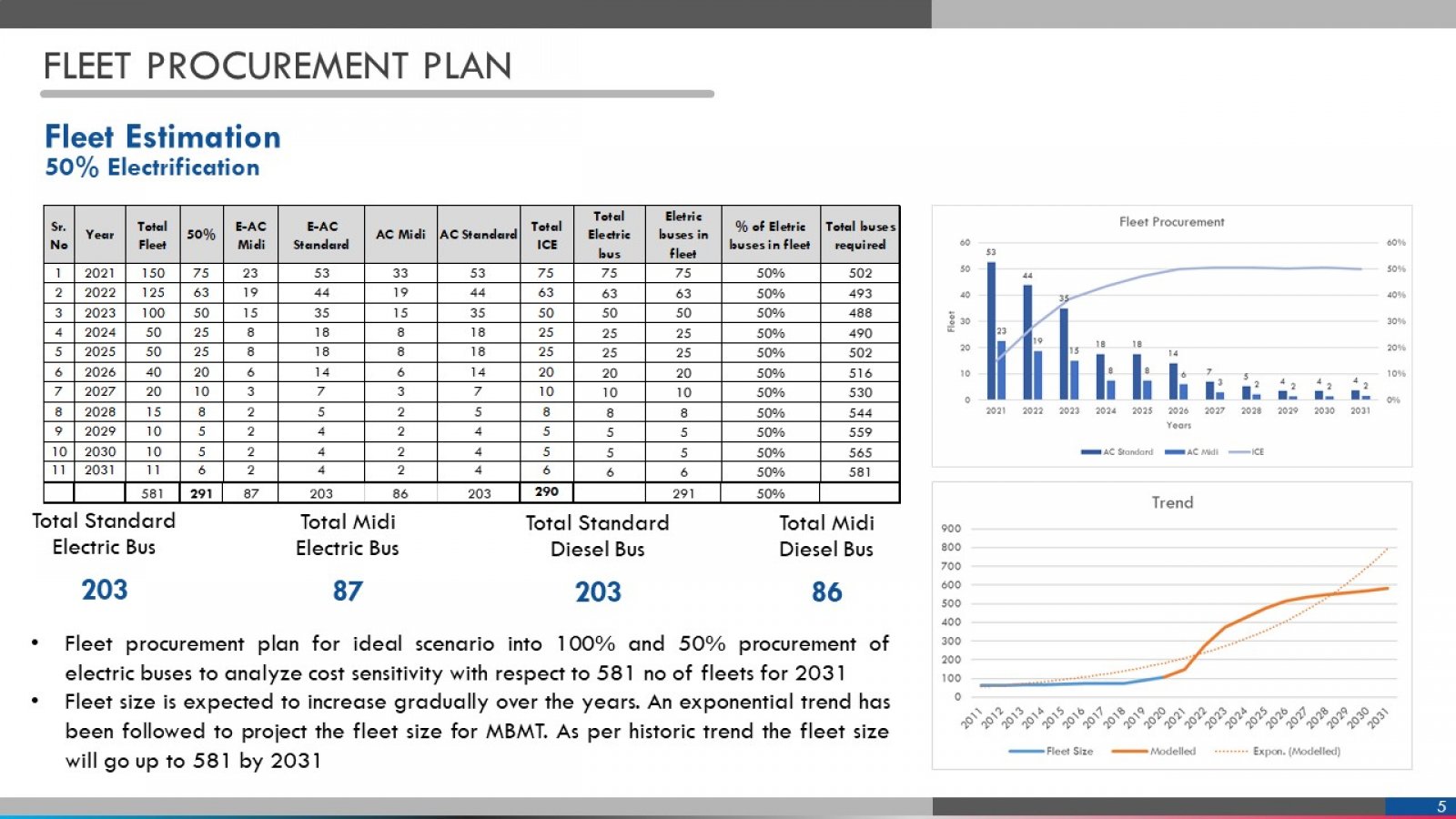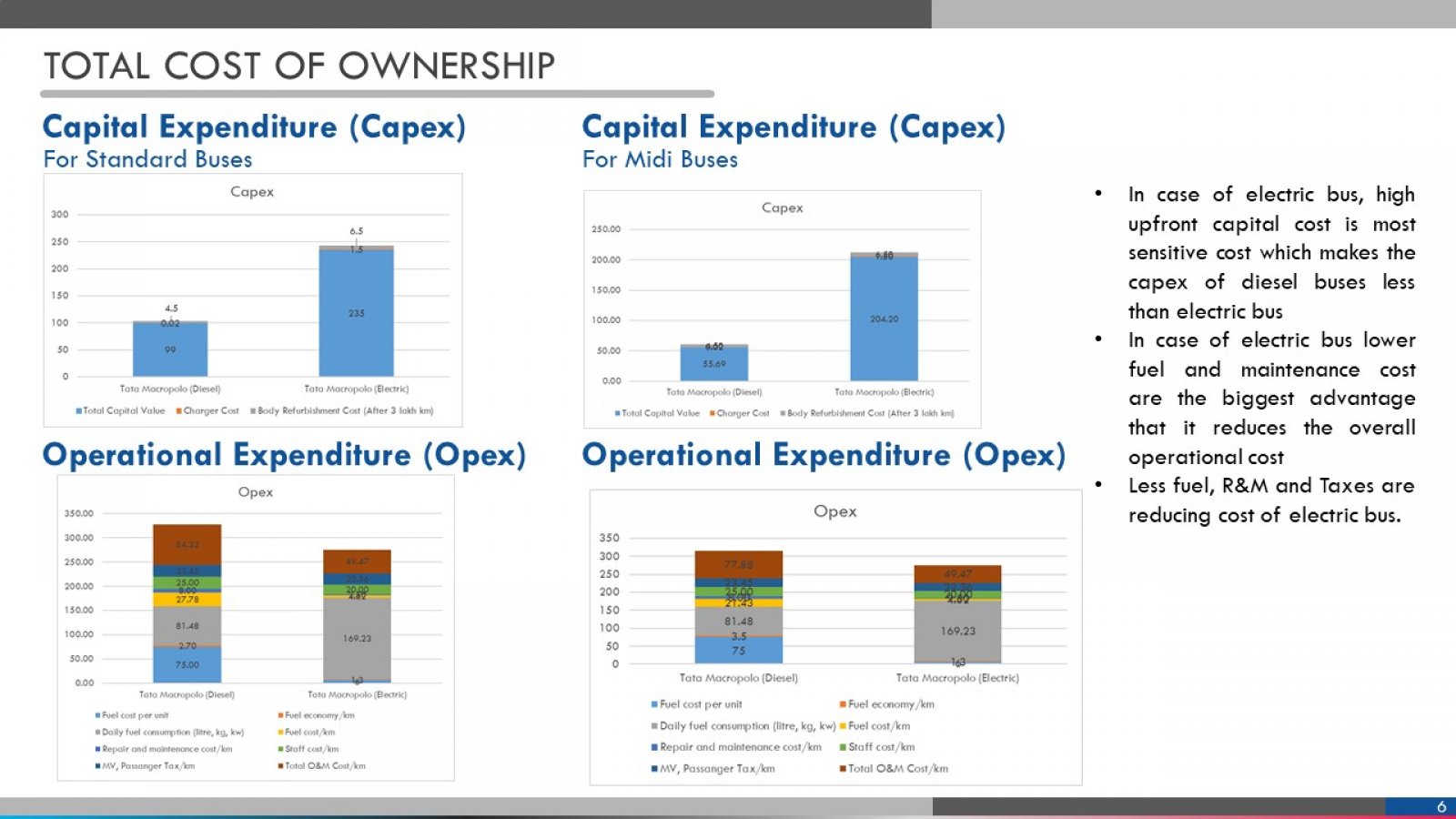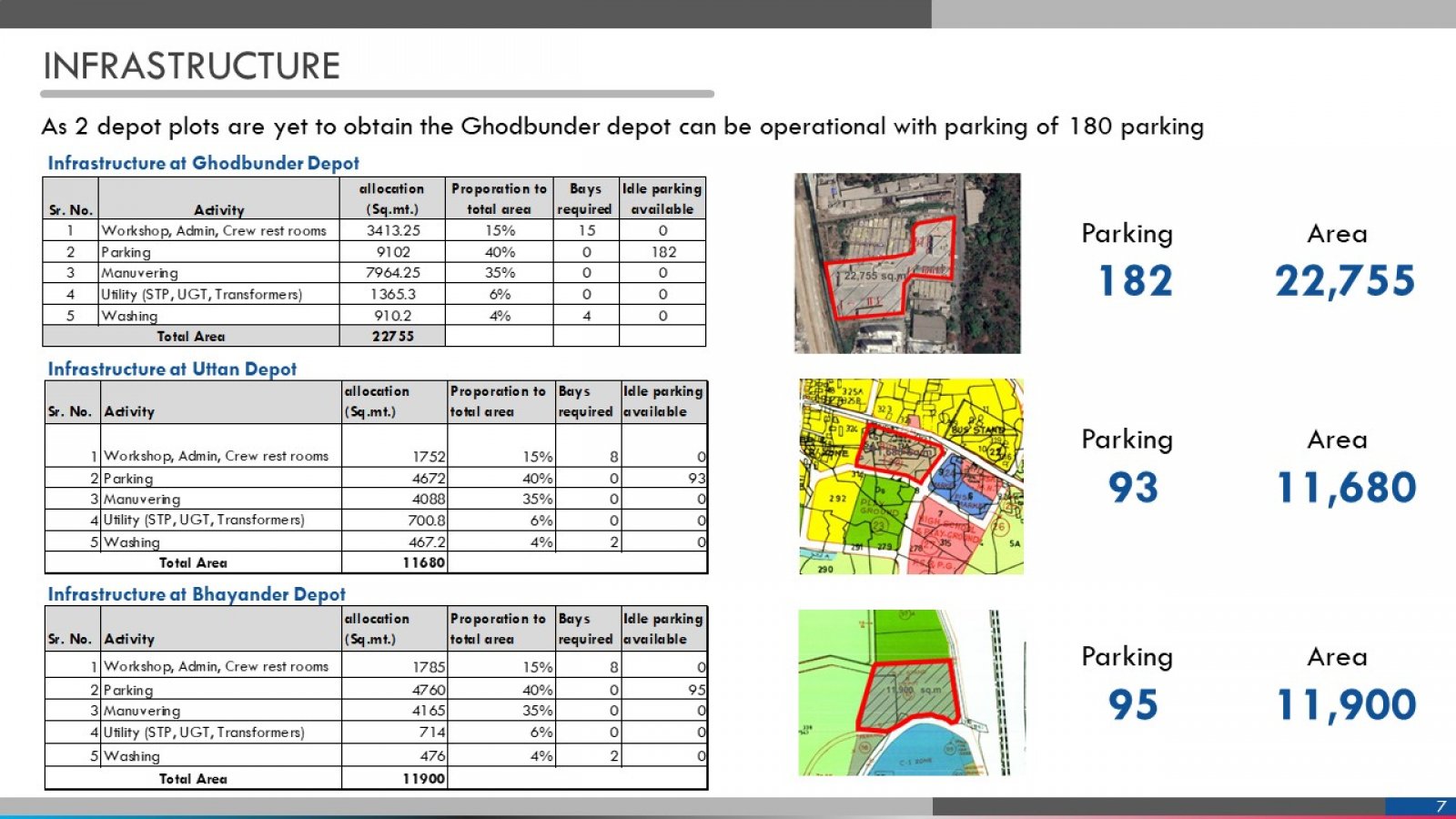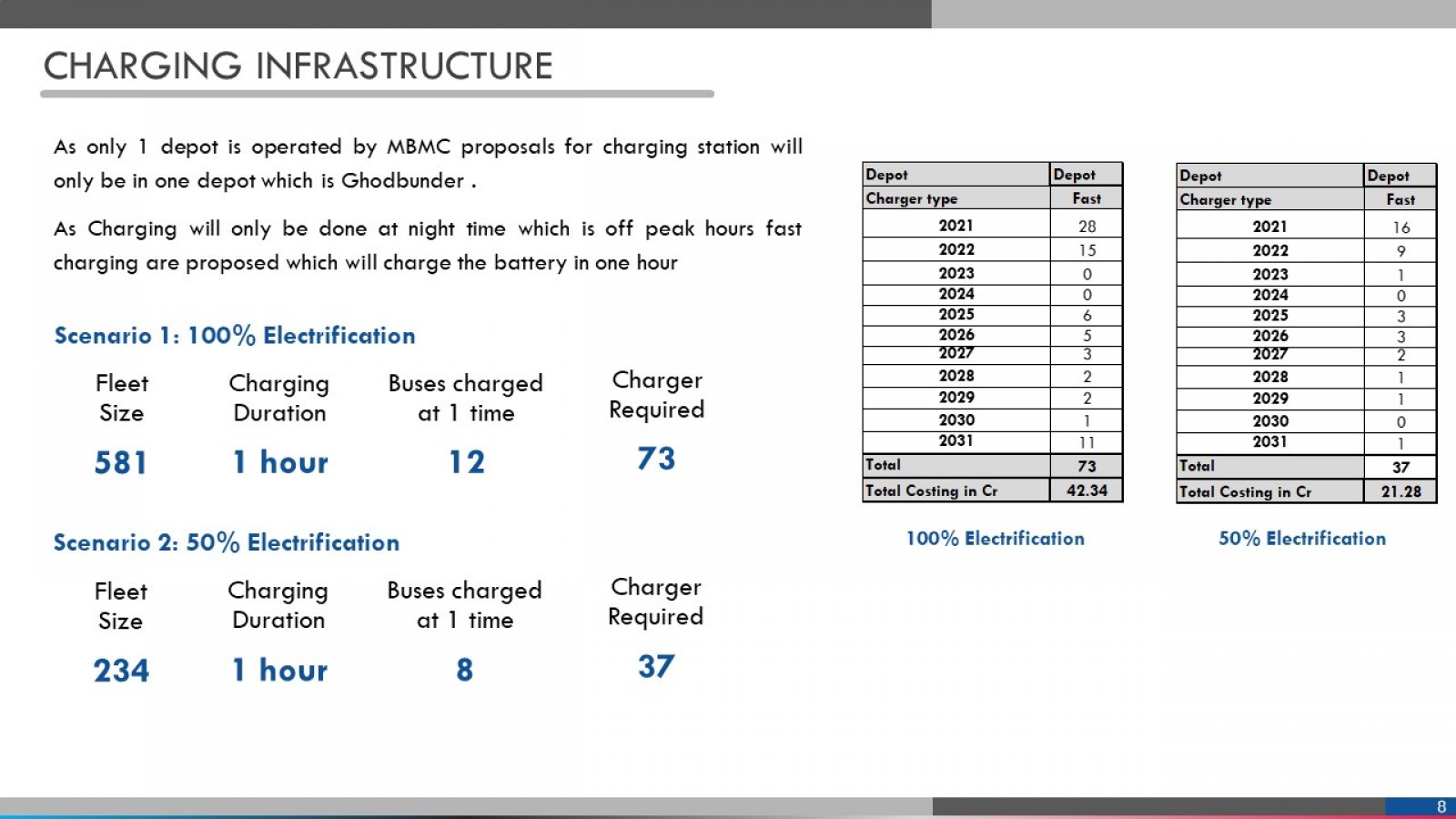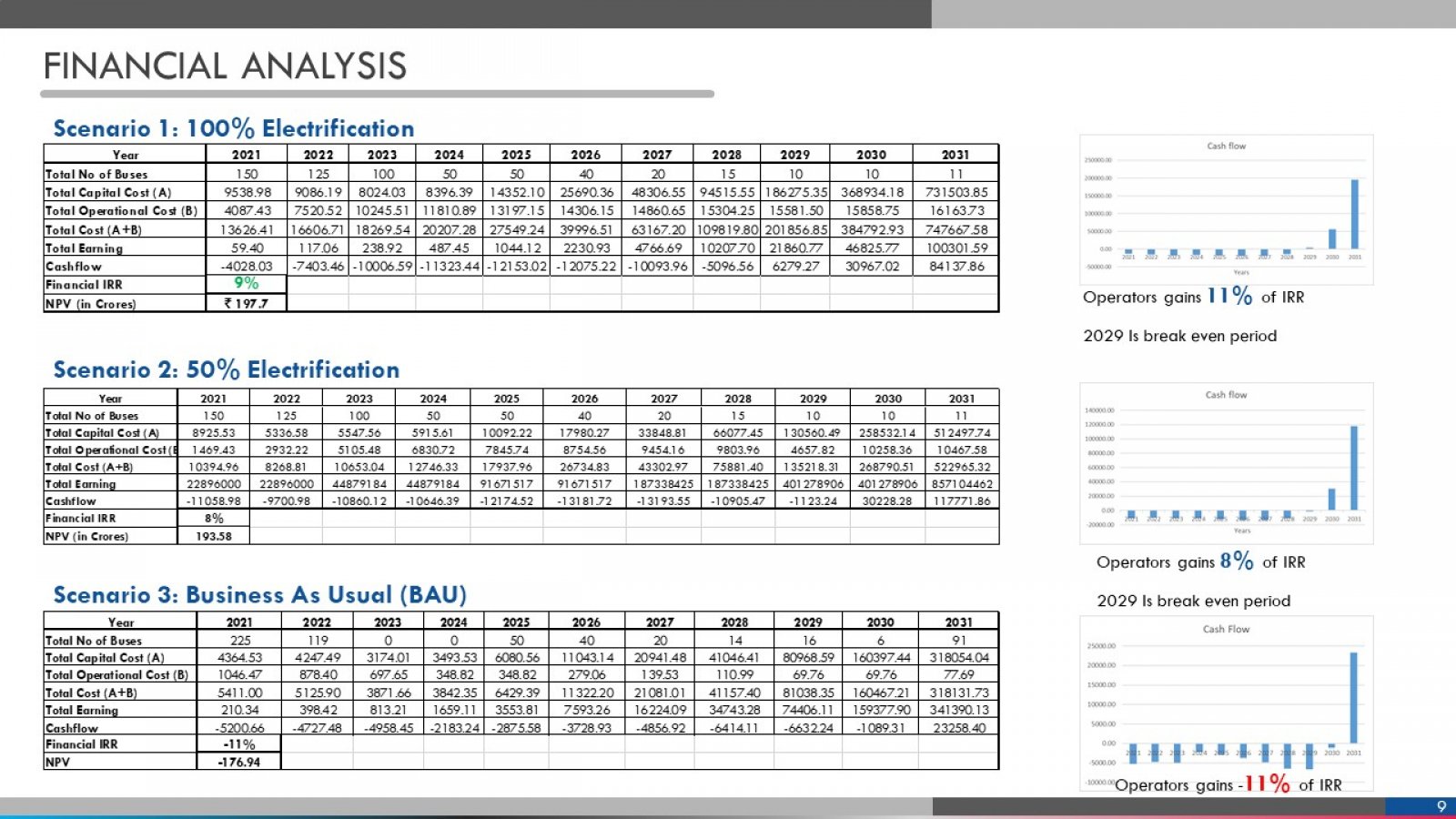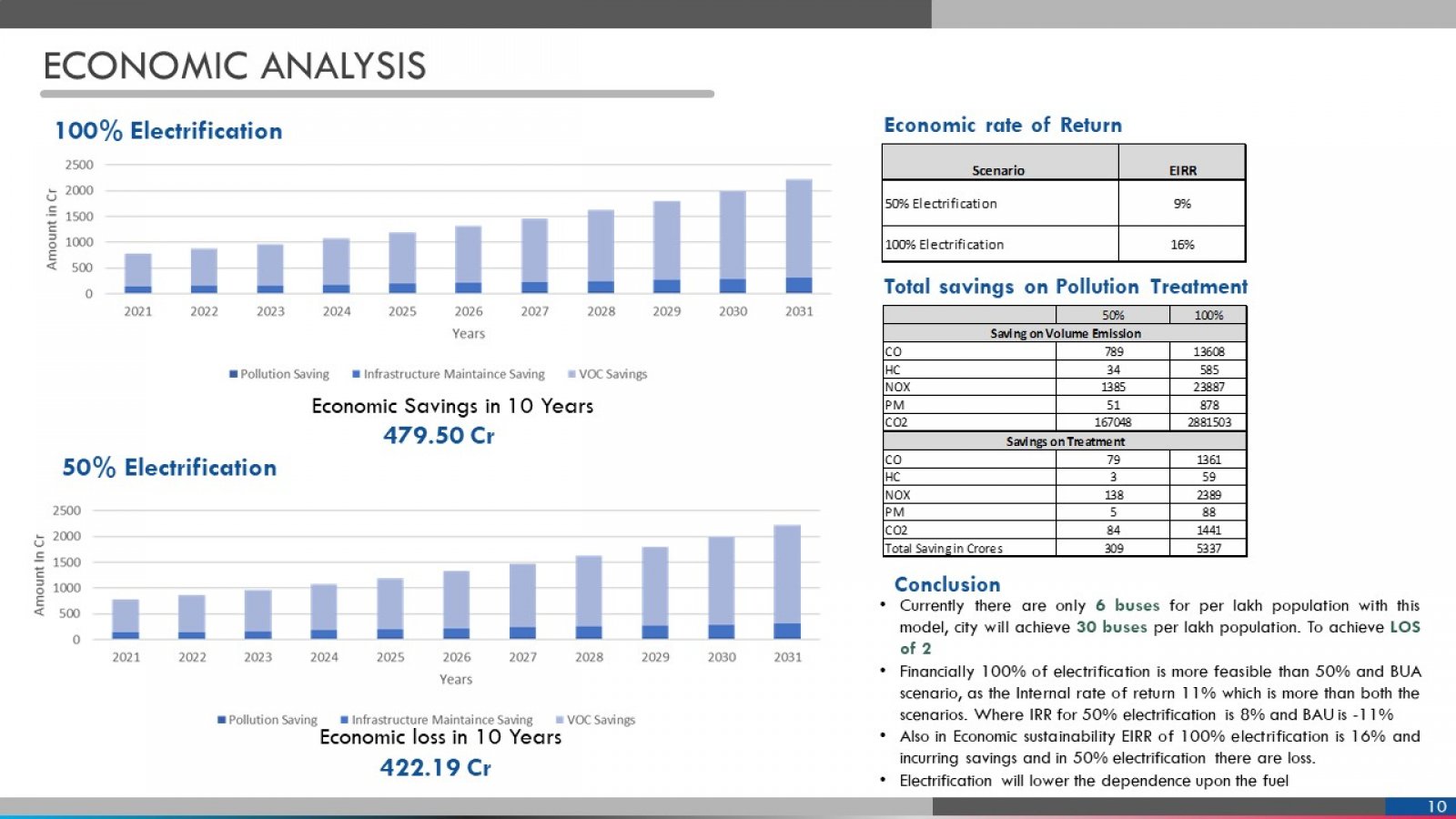Feasibility Study for Adoption of Electric Mobility
- Student PATIL MANISH DILIP
- Code PG190521
- Faculty Planning
- Tutor/s Shivanand Swamy,Khelan Modi
- TA Madhura Kawadkar
In Mira Bhayander Public transport service act as a feeder to the Mumbai Suburban railways. Electric Vehicles (EVs) and assisting technology and offerings constitute new financial pathways in India to boom electricity security (keep away from oil imports), lessen carbon emissions. (reduce greenhouse gas emissions) and improve air quality (better human health). So, the electrification of this system will reduce GHG emission by a certain amount While the challenges to transition towards electrification to make a sustainable transportation model we must understand the city characteristics, the travel pattern and the mode share. The other important thing is the ridership trends of the city, are the people willing to travel in Public Transport or willingness to shift to Public Transport. With reasons to leapfrog India’s adoption of zero-emission vehicles, this takes a look at specializes in battery-primarily based totally EVs (henceforth referred to, as EVs) and prioritizes them for public transportation quarter, a quarter in which an extended early-level adoption of EVs may be fostered thru public-sector intervention. Also, the demand, capital cost, operational cost, infrastructure development and the phasing of the project. Based on the demand the number of fleet size for the satisfy the ridership is calculated. Different business scenarios are considered to understand the financial and economic viability of the business model.
